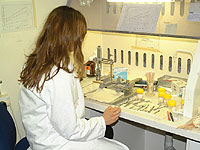|
||||||||||||||||||||||||||||||||||||||
| Food Microbiology - FOOD2627 | ||||||||||||||||||||||||||||||||||||||

Description This is a lecture-laboratory course that introduces the basic concepts of food microbiology, covering the ecology, biochemistry, isolation, enumeration and identification of bacteria, yeasts, fungi and viruses associated with foods and beverages. Food spoilage: specific food microorganism associations; taxonomy and biochemistry of major spoilage species; chemical and physical changes to food properties; spoilage of specific commodities. Foodborne microbial disease: foods as vectors of disease and food poisoning; statistics and epidemiology; ecology and taxonomy of food-borne pathogenic microorganisms; control and prevention by hygiene, microbiological standards and legislation. Food fermentation: microbial ecology and biochemistry of fermentations; fermentations of alcoholic beverages, bakery products, dairy products, meats, vegetables, cocoa beans, soy sauce; production of food ingredients and processing aids by fermentation. Microbiological examination of foods: sample preparation and sampling plans; sub-lethal injury; standard methods for determination of total plate counts, indicator organisms, food-borne pathogenic species, principal spoilage species. Microbiological quality assurance: specifications and standards; decision criteria; hazard analysis and critical control point (HACCP) concept; cleaning and sanitation.
|
||||||||||||||||||||||||||||||||||||||


